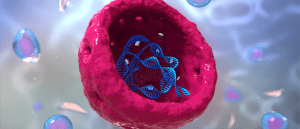How did we overlook CD4+ T-cells?

Recent research overturns our understanding of CD4+ cells’ anti-tumor activity, showing a greater range of mechanisms than previously thought.
A recent study from the Peter Doherty Institute for Infection and Immunity (Melbourne, Australia) has revealed that the immune cells, CD4+ T-cells, play a more direct role in anti-cancer activity than previously understood. Exploiting the newly-discovered cytotoxicity of CD4+ T-cells could pave the way for immunotherapies that treat melanoma, which is diagnosed annually in 15,000 Australians.
CD4+ T-cells are one of the cells that make up the diverse and complex human immune system. They are known as ‘helper T-cells’ for their role in activating other immune cells in immune responses.
In the context of cancer, there is a range of CD4+ T-cell subpopulations, each playing a different role in an anti-tumor response: tumor-promoting regulatory cells regulate immune homeostasis and self-tolerance, some CD4+ T-cells promote CD8+ T-cell and myeloid cell recruitment and some CD4+ T-cells bear cytotoxic qualities.
The multiplicity of CD4+ T-cell responses was investigated by lead author, Emma Bawden, and her research team in melanoma – a rare and aggressive form of skin cancer. They investigated the antitumoral CD4+ T-cell response using a mouse model of melanoma.
Detailed analyses included the use of intravital two-photon microscopy to visualize cellular interactions within the tumor microenvironment in real-time, which revealed that CD4+ T-cells counter cancer in a multi-pronged manner.
The researchers showed that CD4+ T-cells not only prompted myeloid cells to generate tumoricidal nitric oxide molecules but they also combatted cancer independently of other lymphocytes, utilizing two cytotoxic mechanisms: tumor necrosis factor–α and Fas ligand.
The discovery overturns the concept that CD4+ T-cells only work through interaction with other immune cells.
Thomas Gebhardt, senior author of the study, explained that this shift in understanding could elicit future therapies: “While CD4+ T cells are often viewed as accessory cells regulating the function of other immune cells, our work shows they can work effectively on their own. Therefore, harnessing their potential therapeutically holds great promise for the development and improvement of current cancer immunotherapies.”
You may also like:

Base-editing therapy treats hemoglobinopathy patients
An early-stage Investigator-Initiated Trial has seen the first patient with transfusion-dependent β-thalassemia successfully treated with CS-101, a transformer base–editing therapy.